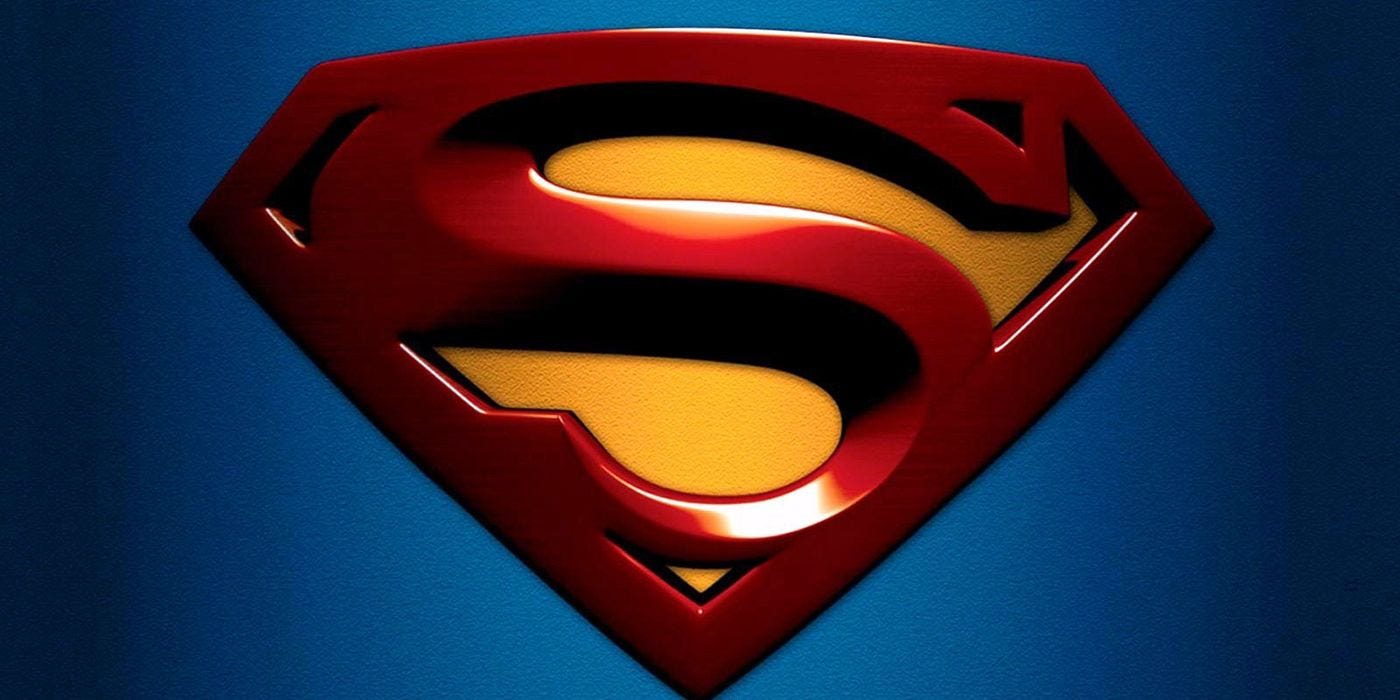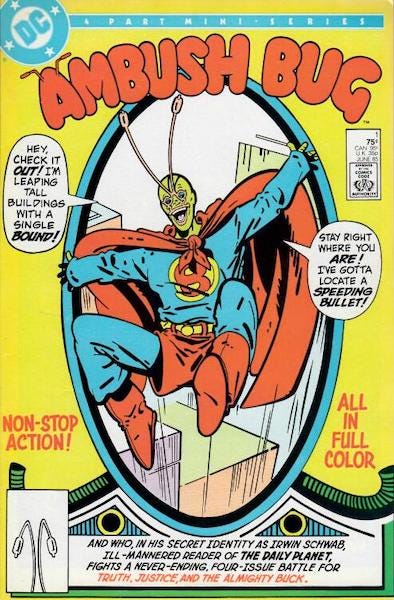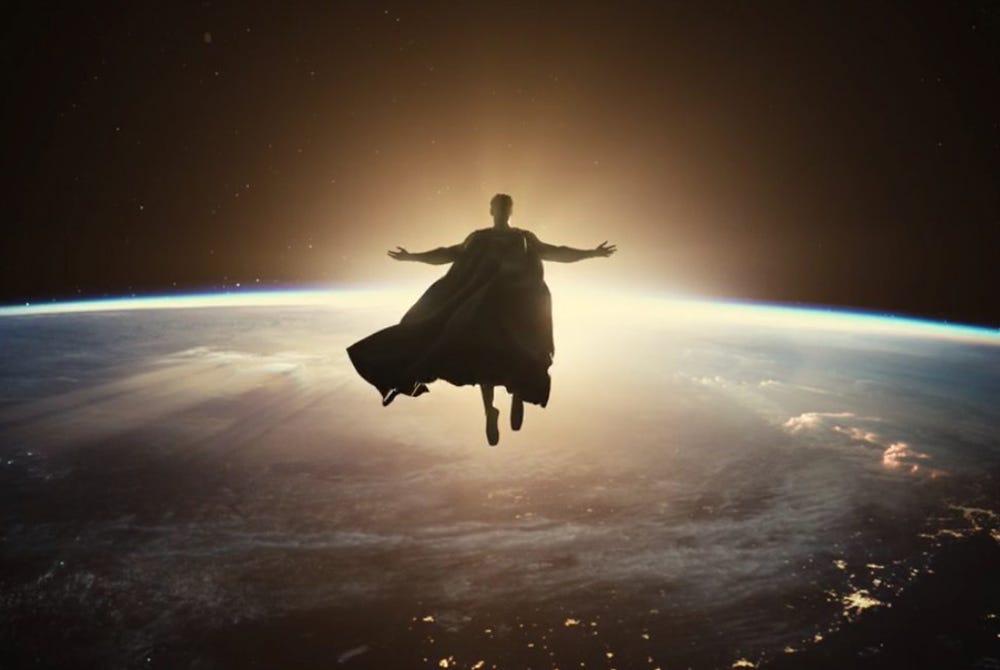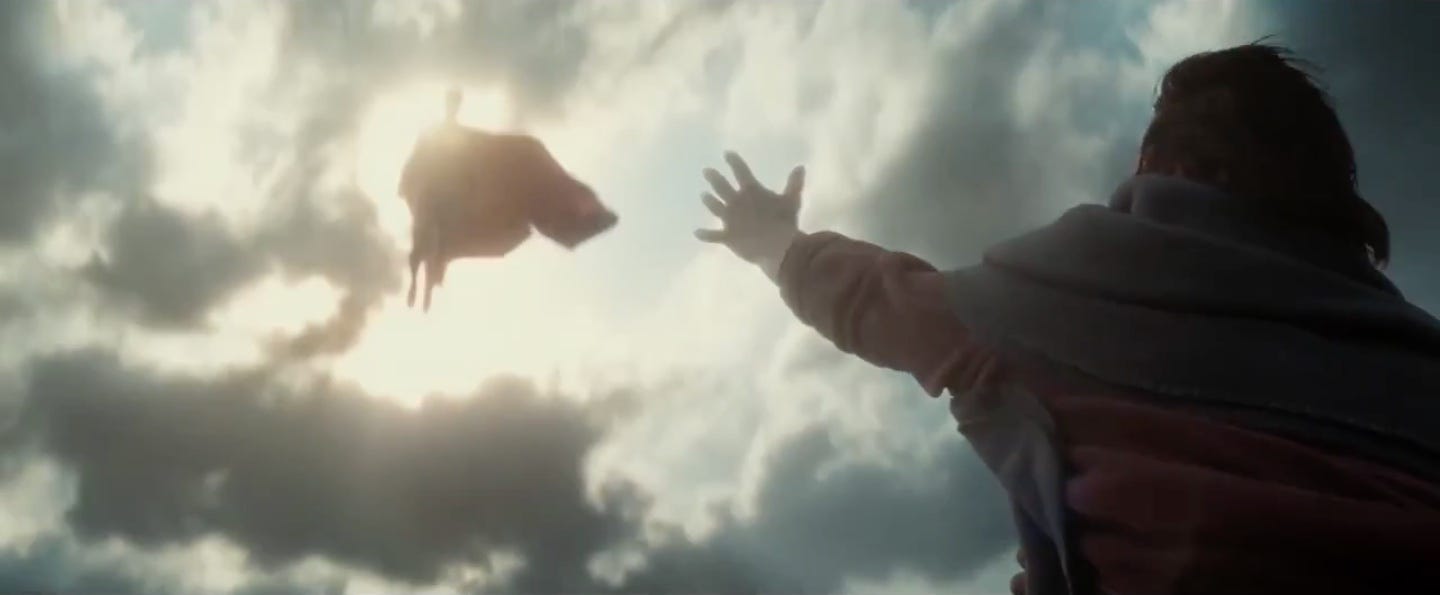Superman, saviour, sociopath
Up, up and hey wait a moment...
In retrospect it was probably Cheeks the Toy Wonder who finally defeated Superman and the rest of the superhero pantheon.
Of course, Superman had never really been a comic book character to me: my first experience of him was of a man flying – actually flying – in two films that transcended entertainment to feel like revelation. Christopher Reeve, beautiful and gentle as a benevolent deity, also wasn’t entirely an actor: I have a very early memory of not being entirely sure whether Reeve or Clark Kent was the false identity of Superman.
After that introduction to the character, the comics seemed hopelessly flat or cartoonishly outlandish or simply rambling, entirely unable to duplicate the wonder of Reeve’s divinity or the thrill of watching interplanetary villains in sexy 1980s club gear get imprisoned in space cellophane.
The rest, however, still had held a certain appeal: an ebullient Spiderman and a morose and self-obsessed Batman formed bookends between which I happily dabbled for a short while.
But then, when I was about twelve, a friend showed me a comic called Ambush Bug and the whole thing fell apart faster than the script of Superman IV: The Quest For Peace. And it was the Man of Steel, specifically, who came off worst.
The few Ambush Bug issues I still have are almost unreadable now, a bit like walking into a room full of people, half of whom are being way too clever while the other half simply whoop at the ceiling, but as a young teenager I was transfixed: by their chaos; by their self-referential silliness; by a superhero whose only powers seemed to be existential confusion and jumping to wrong conclusions, whose trusty sidekick is an inanimate floppy doll with large bulging cheeks named Cheeks the Toy Wonder and whose nemeses include Qantas the giant koala and a DC comics editor.
It was absurd and right over the top but it also let all the air out of all those other worthy, earnest superheroes. Even Spiderman seemed a dour by comparison, while Batman tipped straight over into self-parody: there’s only so long you can watch a billionaire be sad and refuse to get therapy.
The effect on my relationship with Superman, however, was catastrophic. And these were the two pages that probably did most of the damage.
It was dark, it was meta, it was funny as hell, but it also made twelve-year-old me think about who gets saved in the comics and who doesn’t, and why; and then I thought about Superman, able to hear cries of distress from orbit, able to fly faster than the speed of light and therefore able to reach and save any frightened, endangered human on the planet in a fraction of a second.
And that’s when I realized that Superman is a sociopath.
To be clear, I hope that the new film does brilliantly, not only because it has enraged the American far right but because I always want creative people to be rich. I hope it can soften the broken hearts of all the Henry Cavill fans and show them that, yes, sometimes Superman is Nietzsche’s Übermensch but sometimes he’s also a guy in a 1930s wrestling outfit replete with red underpants.
But I also can’t forget what Combat Cheeks revealed about Superman’s ethical worldview.
The problem, of course, is that Superman is God with a capital G. Where most superheroes are reincarnations of pre-Christian polytheistic deities – Artemis has become Wonder Woman, Poseidon is Aquaman, Hermes is The Flash, while Thor and Loki have wandered over without even needing to wear a fake nose – the way that the Superman story has drawn specifically and explicitly on Christian mythology puts him in class of his own: a magical man sent to Earth from very far away by his real parents to be raised as a human being by hardworking, good people so that he can bring light and hope to the human world.
Just in case none of this was clear enough, godless Hollywood has leaned into the religious iconography hard enough to make Mel Gibson blush: in Brian Singer’s Superman Returns (2006), after Lex Luthor humiliates a weakened Superman and then stabs him in the side with a kryptonite dagger (geddit?), our dying saviour flies into space and does this.
As for Zack Snyder’s imagery, well...
I mean.
It’s why the White House photo-shopped Donald Trump’s face onto the new movie poster last week: liberals might have derided it as the crudest propaganda, and some MAGA supporters might have celebrated it as A-grade trolling, but for many in the evangelical movement Trump, Superman and Jesus form a powerful cultural trinity.
In short, as long as there’s no kryptonite lying around, Superman is God. And that’s where things go pear-shaped, because wherever you have a god who allows bad things to happen, you either have someone who isn’t really a god or you have a god who is a complete dick.
This isn’t a judgement call. It’s maths. If you have the internet and a calculator it’s easy to figure out that something violent, awful and quite often fatal happens somewhere in the world at least once per second – and that’s excluding wars.
Superman knows this better than most. He can hear them screaming or drowning or pleading. All the time. It must be nightmarish.
Flying at the speed of light, he could get to many of them. Most of them, even: he doesn’t need to eat or sleep because he’s powered by the sun.
So what does he do? He cultivates a healthy work-life balance, maintains a plausible career and commits to an emotionally fulfilling relationship with a woman.
He hears the screaming. He knows he could help. But instead he goes and has dinner with Lois Lane, timing the meatloaf in human suffering: it’ll be ready in ten minutes, darling. Just another 800 people I could have saved…
When I was twelve I thought Combat Cheeks was dark. But a smiling, handsome god, listening to us tell each other how much he loves us as he runs an endless triage list in his mind, deciding which of us will live and which he’ll allow to die? That’s dark.
Don’t forget to subscribe to Another Day In Paradise to receive my latest column in your inbox ever week, free to read.








I've decided my favourite Superman is Tyler Hoechlin in "Superman and Lois". It de-centres the god Kal-El and has him grappling with marital strife, fatherhood, illness, and actual mortality. Great article.
The book of Job right at the end tells us how absolutely futile it is to even try and reason with God...